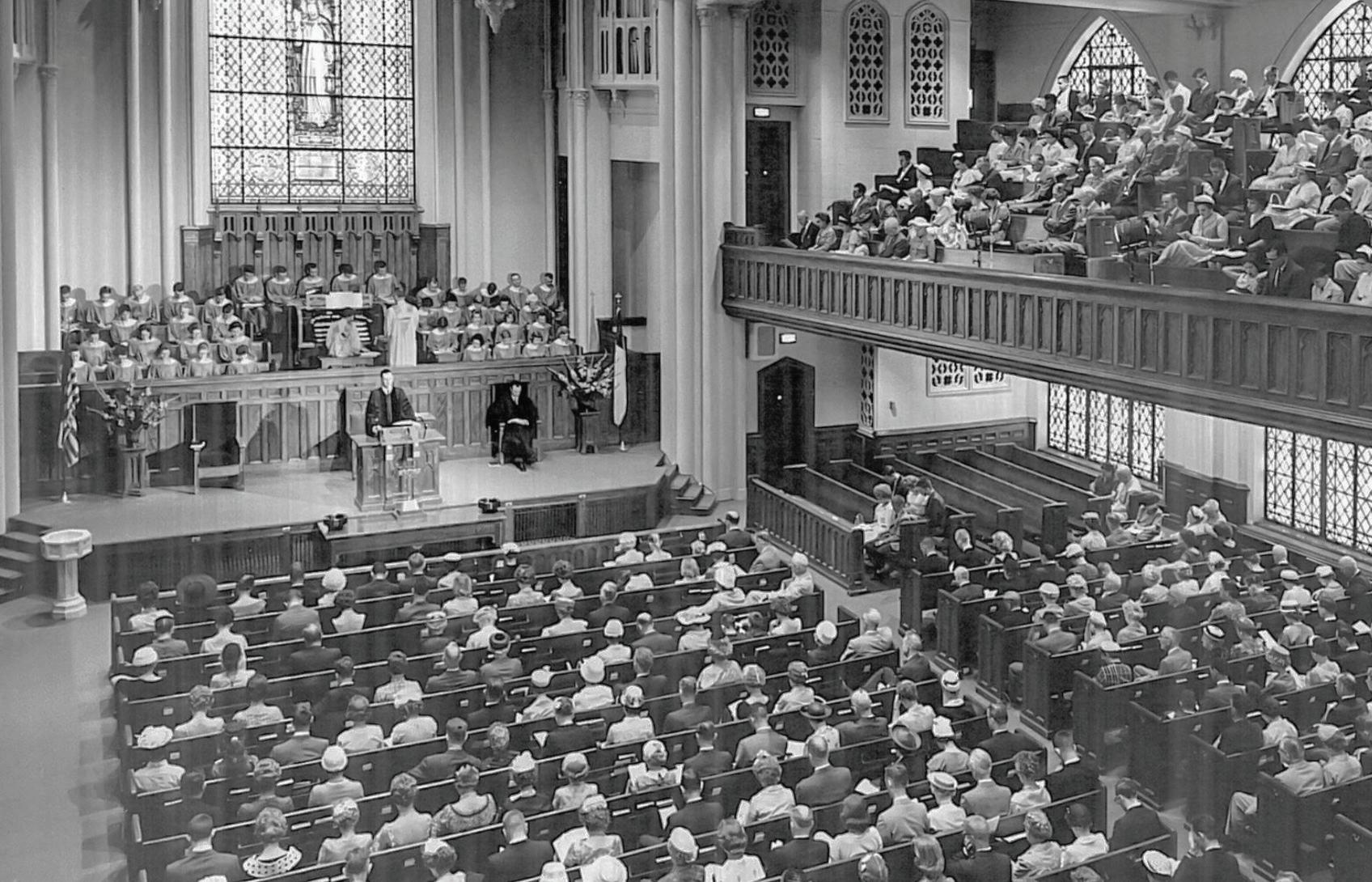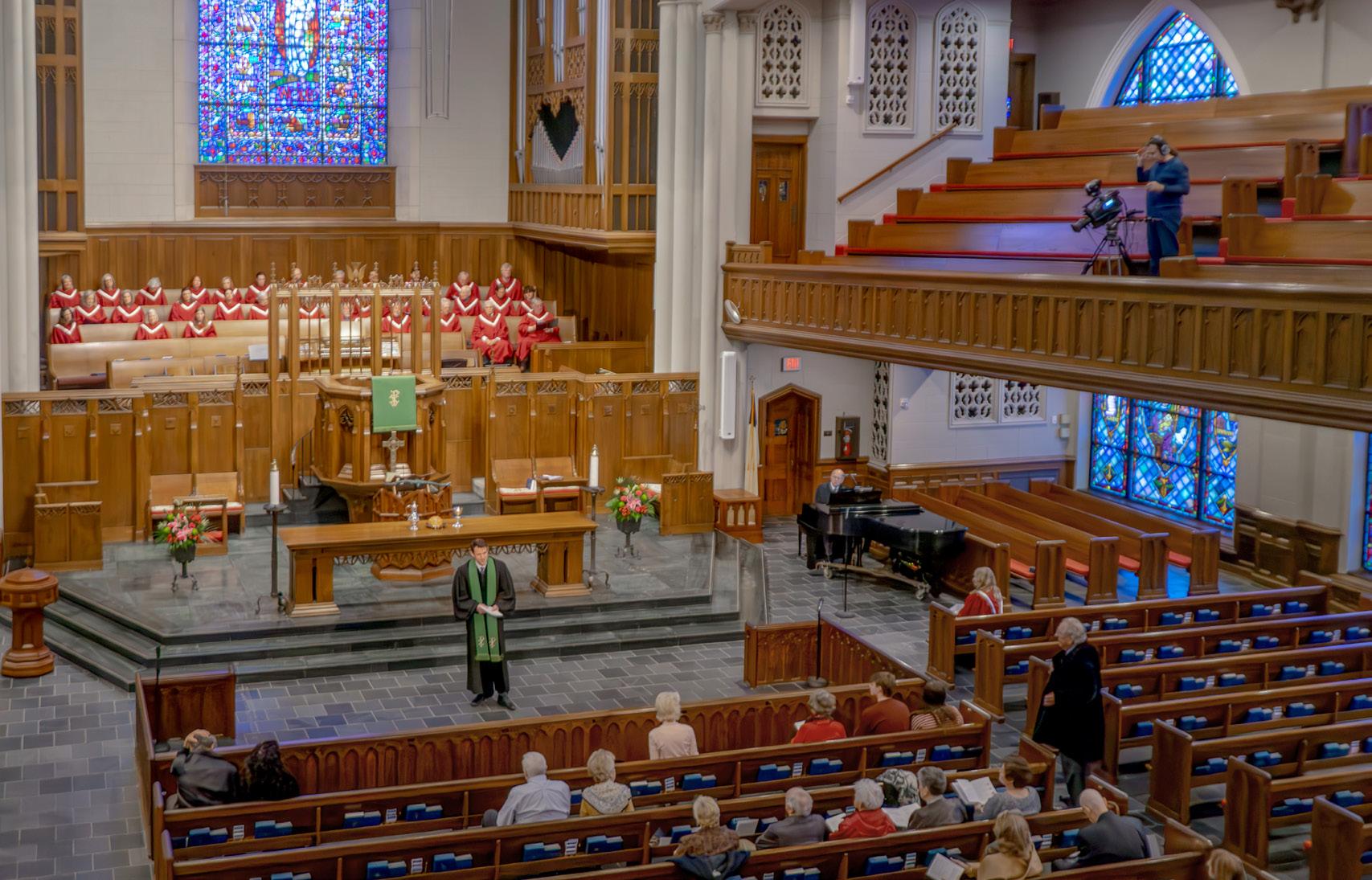
VOL. 70, NO. 1 - WINTER 2025




















VOL. 70, NO. 1 - WINTER 2025


















By Rev. Dan Hutchinson, Interim pastor
I love history. I studied history in college, and it is difficult for me to get through a sermon or class without referencing some historical event. As a follower of Christ, part of what I love about history is the reminder that amid all the tumultuous cacophony in our world, God is still on the throne.
Let me give you an example. The year is 1925. In January, Benito Mussolini declares himself dictator of Italy. A few months later, the Tri-State Tornado rips through the heart of the US. In July, the famous “Scopes Monkey Trial” begins, setting off a firestorm of debate about the relationship of evolution to the Christian faith. Later that month, Adolf Hitler published Mein Kampf.
To say that 1925 was “eventful,” would be an understatement. The impact and aftermath of these events would rock the century.
But there was at least one more key event that happened in 1925. You would not find this event referenced by the History Channel or via a Google search, but in that year, the sanctuary of First Presbyterian Church, Tulsa, was built. This fall, we will celebrate the 100 year anniversary of this space. 100 years of where this community has witnessed God’s faithfulness. 100 years in which people have encountered the living Christ. 100 years of worship, baptisms, marriages, prayers, music, teaching, commissioning, and encountering the life-altering, transformative power of the King of Kings and the Lord of Lords.
Now, of course, we know that the church is more than a building. It is God’s people, called from every tongue and tribe and nation. This community exists apart from spaces and structures.
Yet, as I stand in the Sanctuary and behold the beauty and contemplate the saints who have gone before and the goodness of God that has met so many people in that space, I am grateful for the gift we have as a community of a visible sign of God’s (sometimes) invisible grace to us. I am grateful for a tangible reminder that while dictators may rise and fall, God’s Kingdom is eternal. I am grateful for the reminder that God’s beauty and goodness pierce the darkness of our world as a foretaste of the New Creation yet to come. I am grateful for the physical space that reminds me week by week that God is on the throne, and that I belong to Him.
One final note: the whole point of this space is worship. So, come! Join your voice and sing God’s praises, and by God’s grace, may we be faithful to the God who has been so good and faithful to us.


Worshipping in the majestic Sanctuary of First Presbyterian Church of Tulsa is both an honor and a privilege—a gift from God and from the visionaries who, one hundred years ago, built this sacred space.
Imagine the countless prayers that have risen from its pews during moments of joy, sorrow, and life-altering events over the past 100 years. From baptisms to weddings, funerals to dedications, in our Sanctuary the Holy Spirit has moved powerfully.
But have you ever wondered about the stories our Sanctuary tells? Through its art, architecture, and symbolism, the Gospel of Jesus Christ is proclaimed without a single word spoken. Every stained glass image, carved detail, and sweeping arch carries a deeper meaning designed to elevate our worship and draw us closer to God.
In the coming issues of Tidings this year, we’ll explore questions like:
• What is the purpose of a sanctuary, and why is it adorned with beauty?
• What stories are told through the stained glass windows, and how do they reflect the Gospel?
• How do the architectural elements and sacred symbols shape our worship experience?
With help from the church’s History & Archives team and our pastors, we’ll reveal the layers of meaning behind the artistry and design of our Sanctuary. Every line, image and shape has a purpose—and when you know what to look for, it can transform how you see and experience this awe-inspiring place of worship.
With this series, we will celebrate the beauty, history, and profound symbolism of our Sanctuary and aim to inspire a deeper reverence for this glorious space and a richer understanding of God’s presence within it.
By Jerry McCoy
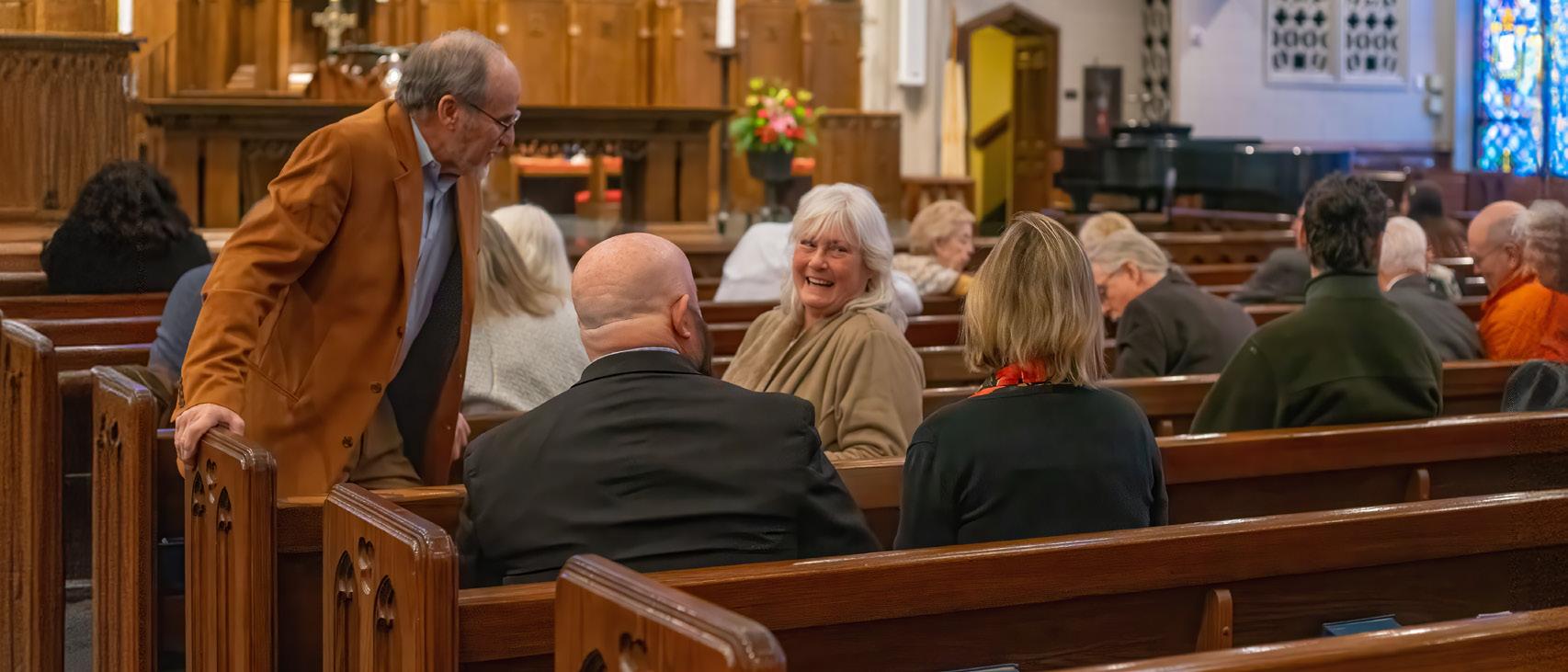
First Friends in the Pews (FFP) is a new ministry at First Church and is one of the simplest ways to serve. Think of us as undercover greeters—friendly members keeping an eye out for visitors, ready to offer them a warm and heartfelt welcome.
Certainly, one of the biggest challenges today’s churches face is ensuring visitors feel noticed and welcomed. Author Rebecca McLaughlin considers visitor invisibility intolerable: “An alone person in our gatherings is an emergency.” She and her husband have a rule to stop what they are doing and go talk to or sit next to anyone who is alone at their church services: “Friends can wait; once met, newcomers should be introduced to other
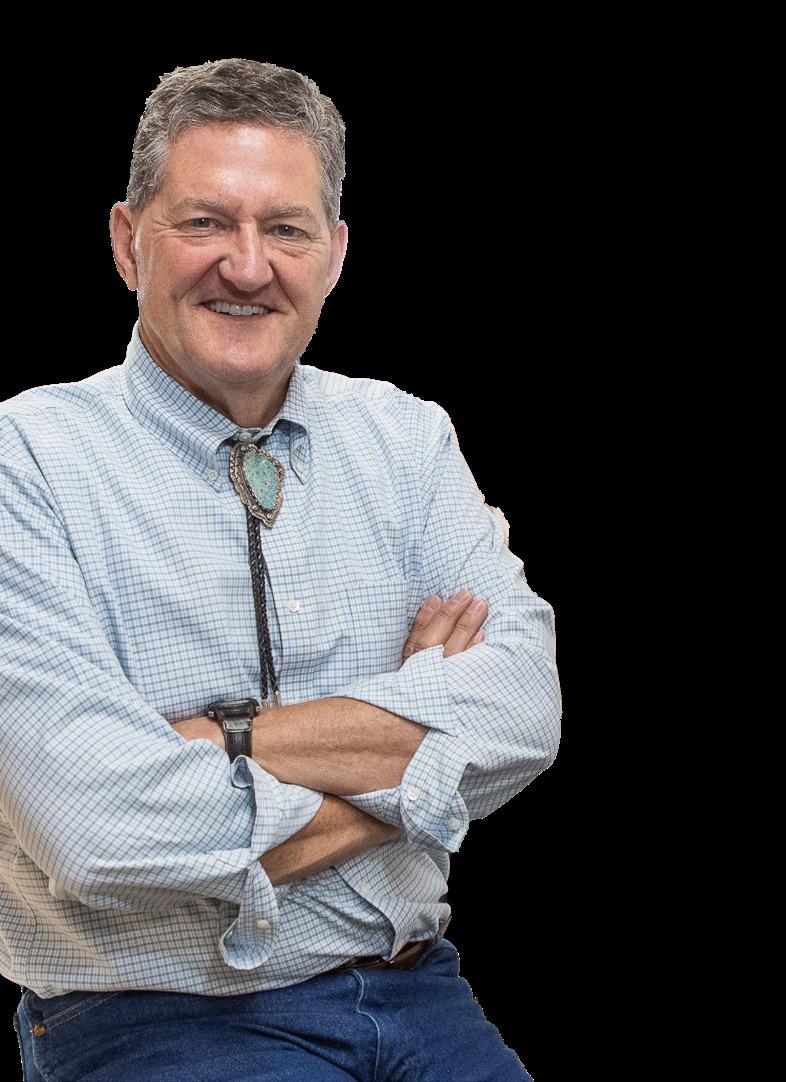
This is exactly what FFPers do. We come to whichever worship service we attend with the mindset of looking for those we don't recognize— who might just be visitors—then, go and introduce ourselves, offering a warm welcome to Christ’s Body at First Church. A friendly chat almost always ensues. If we spot a friend nearby, or even better—a pastor, we invite them over and introduce them to our new acquaintance. We may invite our visitor to sit with us during the service. If it seems natural, we invite them to complete a Visitor Card and make sure it finds its way to Emma Myatt, Director of New Member Outreach. On parting, we welcome our visitor to join us again, then note their name so that we can greet them by name in the coming weeks. All this, and we don’t even wear a name badge. It’s so organic!
Introducing newcomers to other congregants is simple!
Here is just one story about how First Friends in the Pews works, from FFP regular par excellence, Greg Berkhouse:
“I met a young couple at the 11:00 a.m. traditional service—they were there an hour early, sitting in a corner of the back row of the empty sanctuary, pretty much had a neon “VISITOR” sign hanging over them. He comes from distant shores and has settled in the U.S. for years. She, on the other hand, is a lifelong local. He moved here to be with her, and they recently moved downtown and have “wandered around” looking for churches to try. He has Islam in his backstory, says he used to be Christian but is not, but she says she is a Christian. In any case, I fielded enough questions to whet their appetite for more and offered to meet him/them for coffee or lunch. I also lassoed my First Church friend Jephte Douyon to meet them, and the two guys soon landed on the common ground of local volleyball leagues, to which Jephte invited him. As always, these visitors seemed truly pleased to have such attention paid them.”
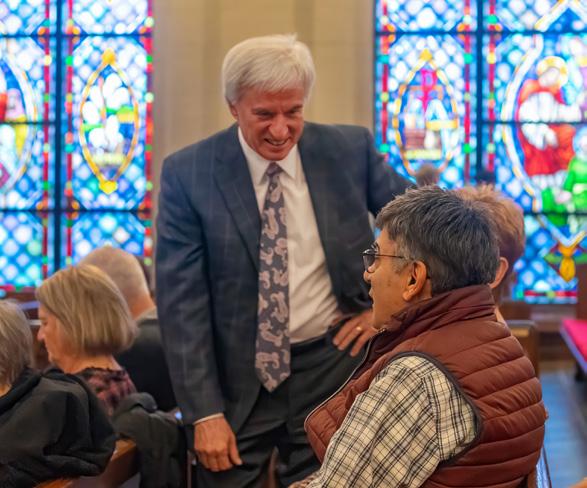
Making a meaningful connection with a newcomer: Rollo’s story
After the early chapel service, I headed down to Miller Atrium to grab a coffee and connect with any newcomers. I immediately saw two men sitting in the chairs just north of the coffee service. One I recognized as David, a regular to the atrium and a happy follower of Jesus. David is a joy to talk with—he just loves Jesus and loves to tell you so! Sitting next to him was a man I had not met but had come to First Church at David’s invitation. I introduced myself and learned that this was Rollo, originally from Greece and fairly new to Tulsa; I could discern a slight accent. Rollo's home is the streets, though he wished for better. He felt embarrassed by his clothing. I assured him that even people who dress nicely and have money also have problems—real problems. He asked me a science question—I can't recall why—but as we conversed, I could tell that he was surprisingly intelligent. In fact, I learned that he had attended university while still living in Athens. I asked him how he had gone from being a university student to living on the streets and he said that he was not reliable enough to hold a job.
I found a blessing welling up in me for David and Rollo and let fly: ‘David, the Lord knows who you are and thinks about you all the time! He thinks about you as often as the number of sand grains on the seashore. He loves you and is delighted by how much you love him. And Rollo, you are a diamond in the rough! The Lord is delighted with the gem he is making you to be and loves to show you off to others.’ I prayed for
both and looked up to see joy in David’s face, and a tear in Rollo’s eye.
I thought we were finished, but I felt prompted to ask Rollo: ‘Rollo, have you ever opened your heart to Jesus?’ He hesitated long enough for me to know that he hadn't and then he said, ‘No, I haven’t.’ I asked him if he would like to, and he said, “Yes.” So right there in the atrium, with people and friendly conversations all around, we prayed; I prayed and Rollo repeated my words in prayer. He prayed that Jesus would forgive him all of his shortcomings, those in the past and in the future. He invited the Lord to come into his heart and thanked him for doing so. I knew the prayer came from his heart.
I encouraged Rollo to visit The Merchant at 6th and Peoria, a storefront at which the homeless can get clothes, take a shower and get food. I also encouraged him to start reading the New Testament starting with the Gospels. I asked him if he had a Bible, but he didn’t. I offered to find him one, but he really wanted a Greek Bible because it would remind him of the words of his own father. I told him that I would find one for him and bring it to church with me for him. If he didn't show up, I told him that it would be a reminder to pray for him, but if he did show up again, it was his.


I felt like Rollo’s prayer to receive Jesus was genuine. I have been praying regularly that God would protect the new creation in Christ that Rollo has become. Right now, I'm looking at the Greek Bible I found for Rollo, hoping it will find a new owner tomorrow.

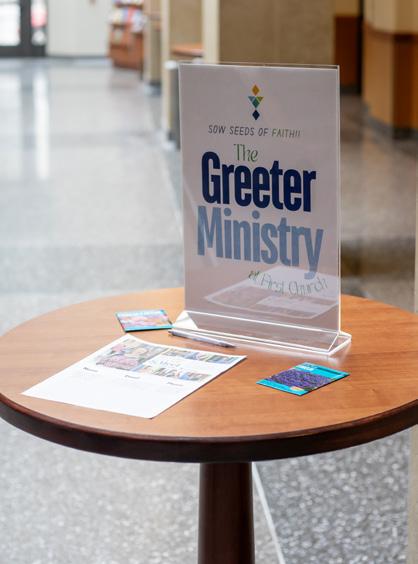
If you feel called to welcome others and make a difference, consider joining First Friends in the Pews (FFP) or the Greeter Ministry at First Church. These fun and important ministries are simple ways to get involved, meet new people, and create a warm, welcoming atmosphere at church.
To join First Friends in the Pews, send a note to Emma Myatt at emyatt@firstchurchtulsa.org , and we’ll add you to the email list. Then, join us on Sundays at 7:45 a.m. or 10:45 a.m., just north of the coffee bar in Miller Atrium, for a moment of prayer before worship—and start connecting with newcomers you encounter.
If you’d like to serve as a greeter, it’s easy to get started. You can sign up for specific times and locations that work best for you at FirstChurchTulsa.org/greeters Be an example of Christ’s warm and welcoming presence—be a greeter this Sunday!
No matter which ministry you choose, you’ll be part of something meaningful that helps make First Church feel like home.


For almost three decades, this scholarship program has been helping college students expand their horizons in music while making meaningful connections with our members. We sat down with Ron Pearson to learn more about the program.
Q: Many First Church members might not know about this program. How did it start?
A: Back in the spring of 1996, Rev. Dr. Jim Miller told me his previous church in Indiana gave scholarships to students to sing in their choir. He asked, “Can we do that?” That sparked the idea of our program. The Wightman family made the first investment and David Pierce became our first scholarship student. Referrals from university music professors helped the program grow quickly. Donors saw it as a win-win—students get financial help for books and tuition, and the church gains talented musicians in our music programs. Gifts to this Designated Music Fund are always welcome.
Q: What are the requirements for students to receive this music scholarship?
A: Applicants must be students and complete an interview, audition, and commit to about four hours a week for rehearsals and Sunday worship. They are expected to perform in the spring and fall choir concerts, which require extra time. Scholarship amounts are based on their level of participation.
Q: How do students find out about the program?
A: Because we have colleges in Tulsa, it’s easy to connect with music professors who recommend talented students for the program. I have great relationships with university music directors, including Ed Pierce from ORU and Judy Raiford, Director of the School of Music at the University of Tulsa. When they identify prospects and send me their names, I email or call the students to see if they’re interested. Over the years, we’ve had students from ORU, TU, OSU-Tulsa, Tulsa Tech and TCC. ORU students, in particular, have come from all over the world, including one from Alaska and several from South Korea.
Q: Besides the choir, do our worship teams use scholarship students?
Q: What type of experience do music scholarship students get?
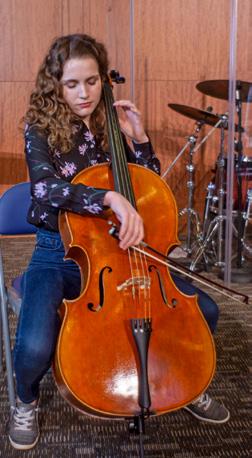
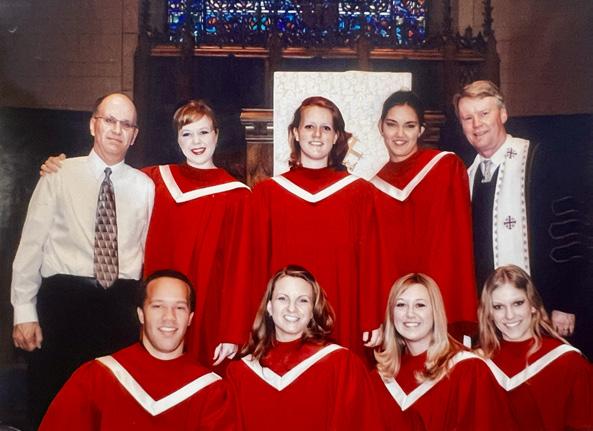
A: Yes, in recent years, both the contemporary worship team and TIF have welcomed talented scholarship musicians and singers to join their teams. Scholarships are also offered to students involved in the Gloria Women's Choir, Overtones Bell Choir, and the Children's Music Ministry. Eric Baird (Contemporary Worship Leader) is very pleased with the program because it brings fresh energy and has introduced many skilled instrumentalists to the worship team. Gretchen Bashforth (Associate Director of Music Ministries) agrees that the Gloria Women’s Choir and Overtones Bell Choir especially benefit from the younger talent. For example, one of our Chancel Choir scholarship students also was a teaching assistant with the Children’s Choir. This was especially good for her: she gained valuable experience working with kids while also providing additional leadership to their choir.
A: Students in this program have the chance to experience new things—learning music they’ve never encountered before, stepping into a sanctuary like ours, hearing a pipe organ for the first time, or even performing with an orchestra. It’s really a valuable opportunity. But there's a lot more to it than music. Spending time at First Church has many residual benefits. Students make new friends, hear inspiring sermons, and some get involved with small groups. Being able to positively influence college students during such a formative stage of their lives is rewarding. Even more, they learn how to work as part of a team, practice discipline, punctuality, attention to details and they commit to improving their skills. Those are lessons they’ll carry with them for years to come.
Q: Have you seen some students realize a career in music after being a scholarship singer?
A: Absolutely. Many of the scholarship students have continued in music, either in performance or teaching and otherwise. A few that come to mind are Taylor Conley, Hope Bradford Conley, Abby Raiford, Maggie Cunningham and Jeremiah Neely. There have been so many students come through the program and I haven't been able to keep up with them all.
Q: Have any music scholarship students gone into ministry?
A: One special story is Michael Homan, who first came to First Church as a scholarship singer while he was a student at ORU. Over the years he spent in the program, he not only shared his musical gifts but also formed strong connections within the church. He began volunteering in the youth ministry, eventually taking on a part-time role at the church and to assistant youth director. His time here sparked his calling to go into ministry, and Michael went on to earn a degree from Fuller Seminary. His exposure to the choir as a student definitely had a huge impact on his journey.
And then there’s the unexpected ripple effect of Rachelle Gewecke’s story. Rachelle’s boyfriend, Michael Gewecke, came from a strict fundamentalist background and would have never set foot in a church like ours on his own. But his relationship with Rachelle brought him through our doors regularly. As he listened, observed, and participated, he became more and more affected by what the sermons were saying. That curiosity led him to explore the Presbyterian faith further, attend seminary, and ultimately become a pastor of a Presbyterian church in Iowa.
In addition, Olivia Lane and Joel Wood also became Presbyterian pastors.
Q: Share a story with us about a special connection made by a music scholarship student.
A: You know, being a part of the choir is a lot more than just singing—it’s kind of like being a part of a big family. Picture this: a college student walking into choir practice and sitting down next to someone who could easily be their aunt, uncle, or even a grandparent. After a while and almost certainly, these connections turn into something deeper. To the students, the choir can become like adopted family—filling the roles of parents, grandparents, mentors, or just really good friends while students are away from home.
Katie Rothenbuehler, soprano from ORU, is my favorite example. She grew close to a longtime choir member, Pauline Horn, and they formed a bond that lasted well beyond her time in school. They kept in touch, and when Katie got engaged, Pauline was overjoyed to receive a wedding invitation. That was a special bond. Even better, Pauline designated a large gift from her estate to the music scholarship fund that has allowed it to continue for years to come. It’s these kinds of relationships that make the choir special—connections that might never have happened anywhere else. And honestly, it’s a joy to watch them form.
Q: What do students say about their experience?
A: A folder in my office is filled with notes, letters, and cards from scholarship students. It’s moving to read them and reflect on the talented musicians who’ve come through. One student shared that before joining the choir, she had lost her faith and direction, but through her time at First Church, she rediscovered God. Almost all of them mentioned feeling welcomed, like being part of a family. They spoke about the caring, giving friendships they made, and some mentioned enjoying the liturgy and sermons. Comments range from appreciating the choir’s pursuit of excellence to valuing the chance to connect with fellow members. We are so blessed to have a wonderful music ministry here, and it is leaving a lasting impression on these students.
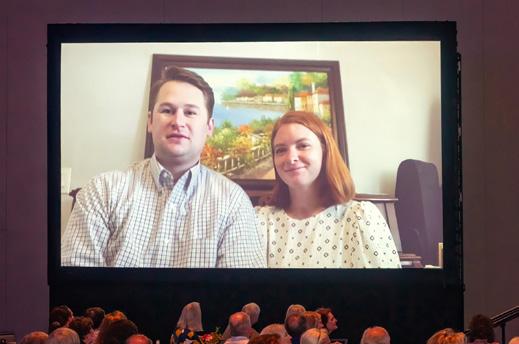
David Pierce TCC
Anne Hunt TU
April Melton TU
Kerrie Usry TCC
Michael Homan ORU
Dorian Gammons ORU
Mike Shimp TCC
Ben Calmer ORU
Brenda Kay Wood TCC
Matt Hunt TU
Gracie Moore TU
Amandalyn Rennich OSU-Tulsa
Tamra Paselk ORU
Maria Lina ORU
Shawn Stepp ORU
Casey Tripp TU
Katie Rothenbuehler ORU
Joanna Moore ORU
Julie Schoonmaker ORU
Sarah Studebaker TCC
Melody Hutchison ORU
Dave Mussen ORU
Ashley Mason TU
Laurel Jameson ORU
Rachael Poling ORU
Candace Marshall ORU
Richelle Davies ORU
Vanessa Platek ORU
Crystal Dyer ORU
Andy Row TU
Nathan Swanson ORU
Mike Hardin ORU
Elizabeth Sheron ORU
Rebekah Haag ORU
Gretchen Gerlach ORU
Matt Cooper ORU
Joel Wood ORU
Todd Gerlach ORU
Aurora Davis Reed College, OR
Amy Scholz TU
Olivia Lane TU
Enrique Tejada TU
Charlain French ORU
Jessica Hart TU
Brianna Buckles ORU
Heather Urquhart TU
Ryan Devlin TU
Laura Studensky TU
Traci Bair OCU
Rachelle Gewecke ORU
Amanda Mitchell ORU
Ricardo Aguilar ORU
Kyle Wilson TU
Haley Dahl TU
Naomi Thyden TU
Chrissy Miller ORU
Gracie Davis ORU
Amber Teachnor TU
Rebecca Johnston TU
Emily Hogenmiller ORU
Megan Wilson ORU
Daniel Hilton ORU
Jackie Olson ORU
Hye Ree Park (Scarlett) ORU
Mike Wilson ORU
Erin Bird TU
Sarah Ingraham ORU
Becca Hyvonen ORU
Taylor Conley TU
Emma Sharp TU
Melanie Piche TU
Soo Kyung Lee ORU
Becky White ORU
Michael Mercado ORU
Sarah Freeman TU
Abby Raiford TU
Caleb Edison TU
Christy Sodsaikich ORU
Neely
Saenz
O’Banion
DeLeon
Did you know?
All net proceeds from the 8:10 Building rental income supports local missions. Here’s an update of the non-profits that are transforming lives, thanks to support from the 8:10 Building Fund.
By Beth Pielsticker, 8:10 Project Council

In the heart of Tulsa, a network of non-profit organizations is receiving vital support from the 8:10 Building Fund, an initiative committed to fostering compassion, hope, and tangible change. Through money generated from rent at the 8:10 Building, the 8:10 Building Fund has been a catalyst for transformative work in the community, impacting refugees, youth, families in need, and individuals facing various challenges.
Here’s a look at some of the amazing work being done in Tulsa and how the community is coming together to make a difference.
Rising Village has quickly become a cornerstone in Tulsa for empowering refugees and immigrants to become self-sufficient, contributing members of the community. Their newly approved refugee resettlement program, developed in partnership with the U.S. Government and World Relief, is set to welcome approximately 100 individuals (25-30 families) by the end of 2025.
The 8:10 Building Fund not only enabled the purchase of a new headquarters for the growing program but also provided essential support for fifteen refugee families, covering an average cost of $2,000 to fully furnish each family's apartment.

Flourish Homes serves a unique and often overlooked population: young women who are aging out of the foster care system. These vulnerable young women, ages 18-25, are provided with housing, education, and spiritual guidance as they transition into adulthood. Flourish Homes offers a safe, supportive environment where residents can find healing and direction.
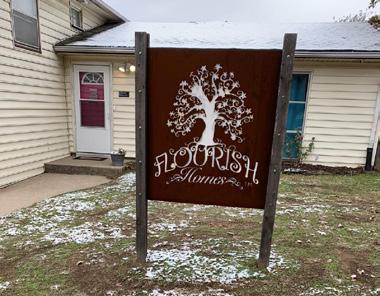
The 8:10 Building Fund has committed to providing the resources for housing, education and discipleship for one resident for three years. This funding ensures that Flourish Homes can continue to offer a nurturing Christian home for women who may otherwise have nowhere to turn.
Habitat for Humanity has long been known for its work in providing affordable housing to families in need. Thanks to the support of the 8:10 Building Fund, Habitat has built a home in honor of retired pastor Dr. Jim Miller and his wife Diane, two individuals whose legacy
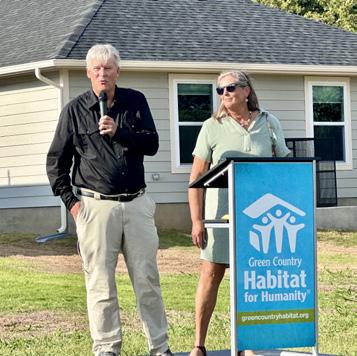
will live on in the lives of a family receiving a fresh start. The home was completed in September 2024 and provided a family with not just a house, but a future built on strength, stability and self-reliance.

Pathways Adult Learning Center provides invaluable education and resources for adults with intellectual disabilities, making it the only post-high school program of its kind in the region. The 8:10 Building Fund’s ongoing support through tuition scholarships will enable 100 families to access this unique Christian educational opportunity over the course of three years. Pathways empowers its students to lead more fulfilling lives by equipping them with the skills needed for independence and meaningful engagement in the community.

Crossover Academy, a Christian college prep school in North Tulsa, is making a remarkable impact by providing high-quality education to students from underserved backgrounds. With over 100 students, all of whom attend on full scholarship, Crossover is committed to ensuring that every student has the resources they need to succeed academically and spiritually.
In 2024, the 8:10 Building Fund provided 10 student scholarships, helping to cover the cost of tuition and materials for students who may otherwise be unable to attend. The school’s focus on holistic education, which includes mentorship and discipleship, prepares students for both college and life beyond the classroom.
Helping Hand Ministry (HHM) is a non-profit organization that provides short-term financial assistance to families in Tulsa County facing utility shutoffs, food insecurity, and prescription needs. HHM is entirely volunteer-run, with 100% of funds raised going directly to those in need.
The 8:10 Building Fund made an initial donation in early 2024, and recently matched additional funds to support their mission. This funding enables HHM to continue serving the community with compassion and efficiency.
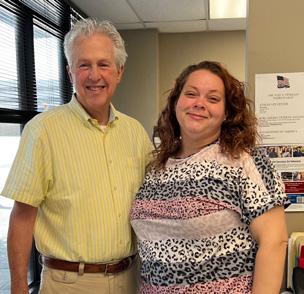
Masterwork Academy offers children from Anderson Elementary School in North Tulsa the opportunity to engage in after-school arts programs that incorporate Bible Study, visual art, dance, music, theater, and physical fitness.
Additional initiatives include summer camps, field trips, and Masterwork Academy Young Artists art intensive (MAYA). Through these programs, Masterwork provides children with a space to
express their creativity and develop important life skills. In 2024, 31 students enjoyed a week at Camp Loughridge, and 20 participated in the MAYA arts program. Additionally, 14 students were able to attend camp at Kids Across America, thanks to private donations.

These non-profit organizations represent just a small fraction of the life-changing work happening across Tulsa, all made possible by the vision of the 8:10 Building Fund. Whether it’s providing housing for a refugee family, supporting a young woman aging out of foster care, or mentoring a child in need, each organization plays a critical role in building a stronger, more compassionate community.
The 8:10 Building Fund is more than just a source of financial support—it’s a testament to what can be accomplished when we come together to serve others. From funding scholarships to providing homes and offices, this fund makes a profound difference. This list is just a sample of the organizations which have benefitted from the 8:10 Building Fund over the years.
If you're inspired by the work of these organizations, there are numerous ways to get involved. Whether through financial donations, volunteering, or simply spreading the word, your support can help change lives in Tulsa for years to come.
Rising Village
English language learning for refugees, sewing, childcare, transportation and citizenship classes.
Sign up to serve at: www.Risingvillage.org/volunteer
Flourish Homes
Mentoring, meal preparation, transportation, and event planning for young women on their journey to independence. Learn more at: www.Flourishhomes.org/volunteer
Pathways Adult Learning Center
Tutors and one-on-one mentors to help students reach their full potential.
Sign up to serve at: www.Pathwaysok.org/mentor/
Crossover Academy
Tutors, mentors, and business partners to support students as they strive for excellence.
Contact: www.Crossoverprep.org/contact/
Helping Hand Ministry
Volunteers to fill critical roles such as treasurer and grant writer.
Email: helpinghandstulsa@firstchurchtulsa.org
Masterwork Academy
Teachers, tutors, mentors to help students discover their God-given talents.
Contact: Executive Director, Jenette McEntire
Email: jmcentire@masterworkacademy.org

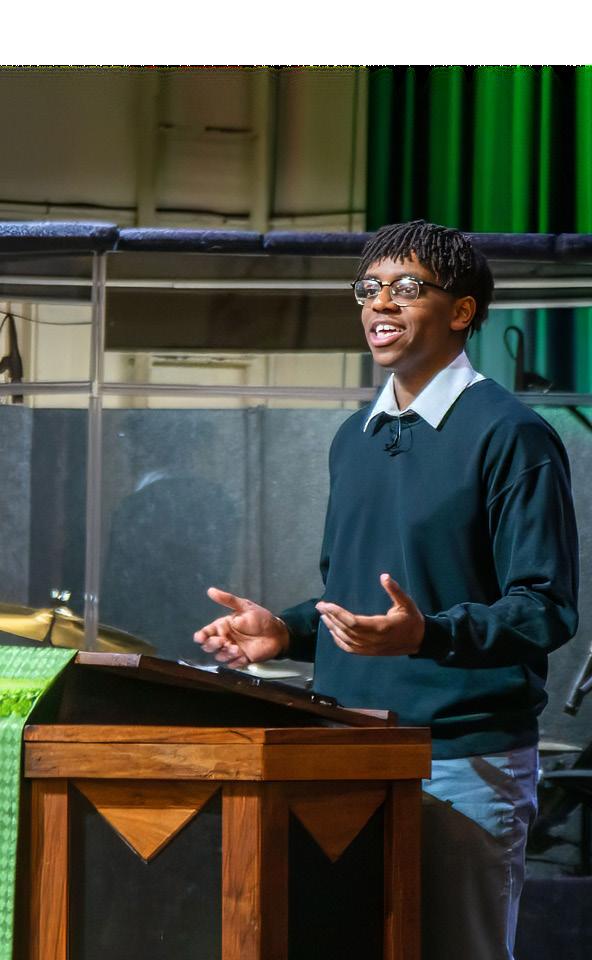
By Nick McMillan, Moderator of the Board of Deacons
NextGen ministries here at First Church nurture students’ faith journeys from birth through high school, fostering Biblical literacy, spiritual growth, and the application of Christian principles in daily life. Our staff and volunteers are focused on helping children and youth engage with scripture in ways that match their developmental stages.
The Children’s Ministries at First Presbyterian Church serve children ages birth-4th grade. Biblical knowledge comes through intentional practices designed specifically for the developmental levels of each child.
Sunday school during the 9:30 a.m. hour follows a yearly curriculum for children in Pre-K and younger and a two-year curriculum for children in Kindergarten through 4th grade.
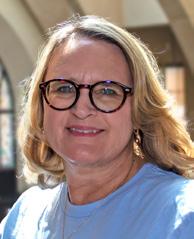
By the time children transition out of Children’s Ministries, they should be very familiar with the stories of the people whose lives are recorded in the Bible.
During the 11:00 a.m. service, children PreK and younger attend Wee Worship. This mini service time is split into four parts that parallel the Presbyterian order of worship: “We Gather, We Pray, We Learn, We are sent forth.”
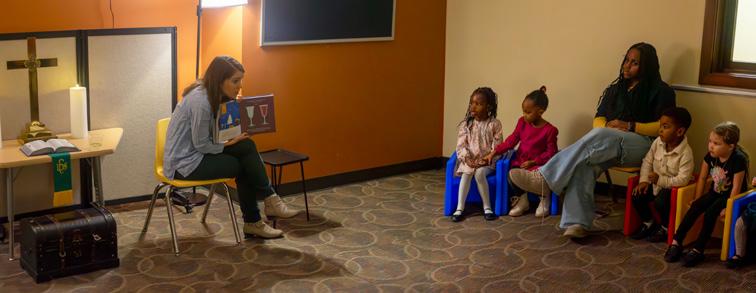
“We want the children to hear the sounds and language of Scripture and worship and to become familiar with being attentive to God’s word.”
– Sarah Savage, Director of Children’s Ministries
Elementary-age children attend worship with their families. After the Children’s Moment, Kindergarten through 2nd grade transition to K2Quest, where lessons follow the liturgical calendar and align with the pastors' sermons.
AWANA is offered on Wednesday evenings for children ages 2 through 4th grade and plays a vital role in their Biblical learning at First Church. The emphasis is on scripture memory using crafts, games, lessons, and fellowship to enhance learning.
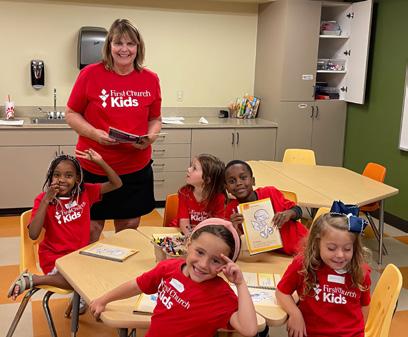
The main goal of our Children’s Ministries is to build a foundation that is based on knowing and trusting God in both good times and hard times. This goal focuses on forming a relationship with God based on trust and love rather than obedience alone. This kind of learning can carry children through their entire lives. Since they have a relationship with God based on love and trust and not just obedience, they learn that his forgiveness comes easily and generously.
Parents play the biggest role in teaching their children about God and the Bible. Sarah stresses that Sunday morning and Wednesday evening are not like piano lessons or soccer practice. Parents can’t drop their children off at church two times a week and expect that they will become Biblically literate. The bulk of Bible learning should be taught in the home. Sarah points out that Biblical truths are learned from parents, teachers and peers who demonstrate what it means to learn, live and love. She emphasizes that while the church offers excellent Children’s Ministries, developing Biblical literacy and application depends heavily on parents and their own Biblical literacy and application.

Children join the Pathfinders middle school ministries in fifth grade, which serves students through eighth grade. Scriptural education in this ministry spans a pivotal time in children’s lives when abstract thinking develops. Jackson Seibert, Director of Middle School Ministries, says, “Children from about age nine to eleven get really good at thinking in concrete terms like cause and effect. Books like James and Proverbs can serve as a bridge from this stage through puberty, when youth hit the second period of greatest brain development in their lives.” (The initial period occurs from birth to age five.) At this point, neural pathways that were developed and focused become impeded, forcing youth to access information in more roundabout ways, such as observing more things and observing their and others’ thinking, forming the basis of abstract thought. As Jackson explains, “Students will draw a blank on concrete facts while the brain is in this enforced state of change. Yet the brain is working, learning to look at things from a different perspective.”

“In Pathfinders ministry, kids are learning to look at things from a different perspective.”
– Jackson Seibert,
Director of Middle School Ministries
The Pathfinders curriculum builds on Biblical literacy based on repetition to see what children know, provides structure when this knowledge is impeded, and enables them to learn it in a new way.
As with adults, small group Bible study plays an important role for middle schoolers and, especially, high school students. In middle school, children are still gaining in self-awareness and engage at higher rates in large group, classroom style discussions than high school students. By high school, students are more self-aware and worry about sounding like a know-it-all, being embarrassed, or getting something wrong, and therefore, for high schoolers, small group discussion becomes an important practice for developing Biblical literacy. Students start engaging in small groups in Pathfinders, where they learn to be comfortable in small groups, wait in turns to speak, and consider what others have said. With this practice, they’re better able to process scripture, read, and think, in small groups.

In high school, youth are moving from learning and practicing abstract thinking for the first time to seeking independence and developing a personal relationship with God. Just as small groups are crucial for developing Biblical literacy, so is personal, autonomous time in Scripture. At this stage, students may develop a sense of how the Holy Spirit is with them while reading, and more transformation happens as Biblical literacy develops in personal time spent in Scripture.
“Around
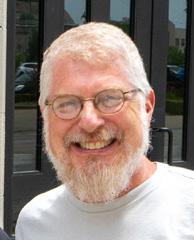
high school, students will have developed
a sense of how well they know God and whether they want to know God better.”
– Steve Wilson, Director of High School Ministries
They may begin an intentional, spiritual practice of reading scripture that is not only intellectual.” High schoolers begin wondering how Scripture is supposed to impact and shape their daily lives. They are learning the reality of the spiritual realm in which God operates. They are, as Steve states, “developing the spiritual muscle to look for God in their circumstances and to develop this relationship.”
While adults may become more aware of what other people think, adult opinions can become habitual, and once abstract thinking is developed, it becomes harder to change. Jackson says, “Reassessing what we think and why is really hard.” Sarah Savage states, “with children, the application is easier. As children age, thinking becomes more abstract, and responsibilities become more varied and complex, application may get harder or not be as obvious.” Christian service is a way for adults to challenge thinking that has become settled. And through an avid, varied practice of Biblical literacy salt can maintain its saltiness.
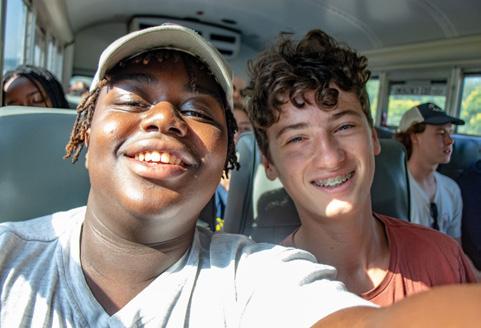
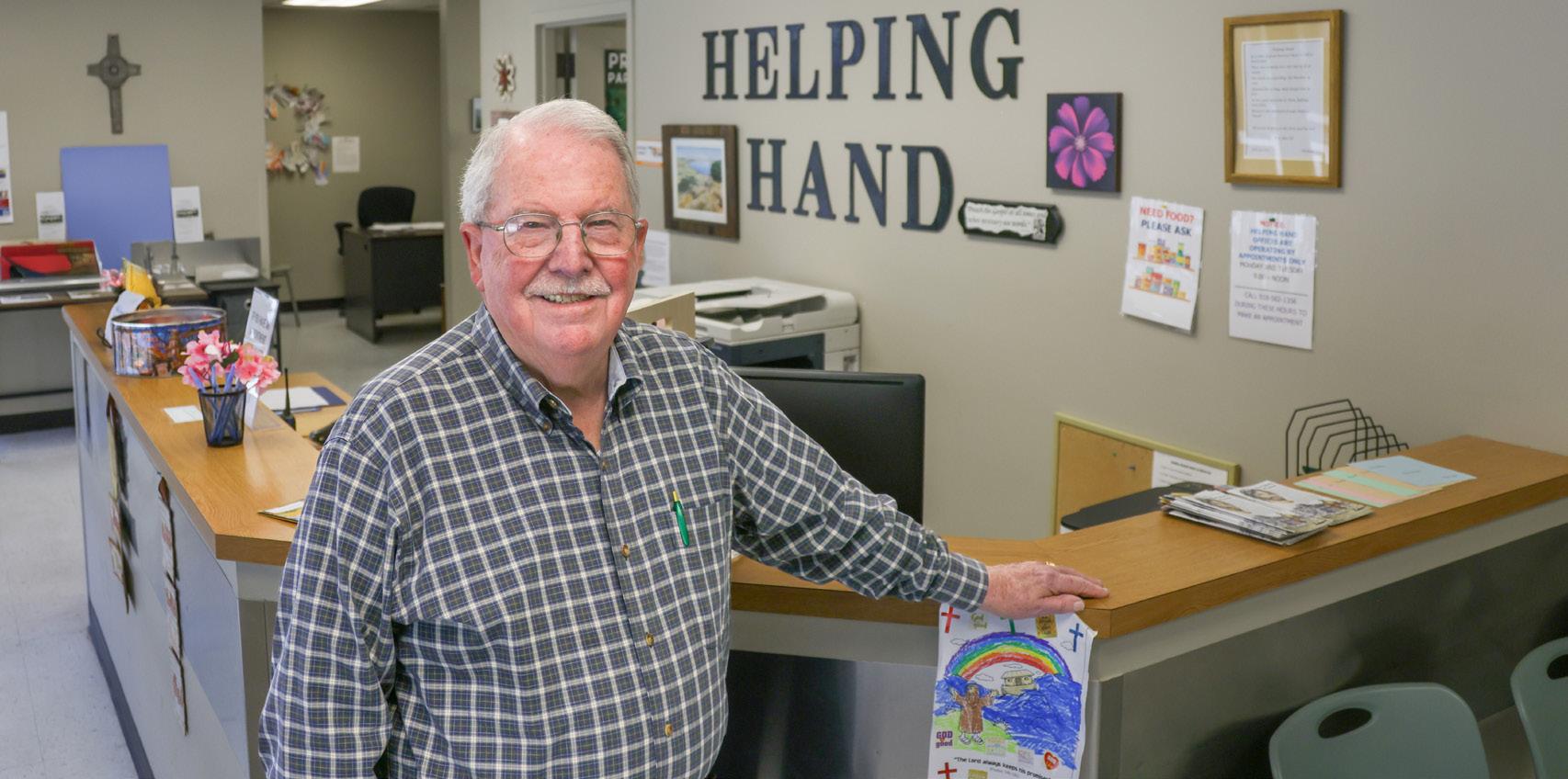
By Carol Elrod
When Dwight Creveling recruited his former college classmate, Phil Marshall, to take over as Treasurer of Helping Hand Ministry in 2010, it’s unlikely that either knew that it would lead to 14 years of faithful service. But, as he did in his professional career in real estate, Phil brought innovation and commitment to his new role. Believing that he could best serve by thoroughly understanding the mission of the ministry and the various roles served by the volunteers, Phil jumped in and learned the jobs of counselor, interviewer, and food pantry worker. In addition, he greatly increased the number and scope of grant applications submitted and approved by the various foundations in the Tulsa area. Because of his efforts, as well as several annual fundraisers, the amount of assistance able to be offered to each person or family has increased from $100 in 2010 to $300 at the present time.
“
I enjoy helping others through a difficult time in their lives. There is no better place to serve the Lord than volunteering at Helping Hand Ministry.”
Phil credits God for guiding people to seek help at Helping Hand, whether it's a young mother or an elderly gentleman. He shared stories of how he was able to remind the recipients that the Lord was talking to, and working through, them. He also acknowledges that there are challenging times, as well, when they are unable help everyone. Because of the limited funding, Helping Hand can only help an individual once in a 12-month period, and for no more than $300. But in cases where more help is needed, the volunteers
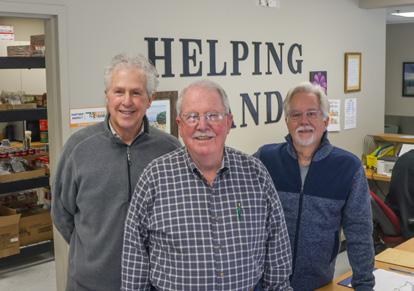
do all they can to help clients find other resources to assist them. When asked why he has been so devoted to this particular ministry, Phil responded, “I enjoy helping others through a difficult time in their lives. There is no better place to serve the Lord than volunteering at Helping Hand Ministry.” Phil is quick to decline any recognition for his years of dedicated service to Helping Hand Ministry, simply saying that the Lord led him to volunteer there. However, volunteers who have worked with him over the years have high praise for his service.
Former Helping Hand Ministry President, Keith Mott, stated, “Phil has been the backbone of Helping Hand for years by writing grant requests, preparing monthly financials and budgeting for the year. He has lived his strong faith through his commitment to and love for people in need.
Phil, job well done!”
– Phil Marshall
In addition, the current President of Helping Hand Ministry, Joanne Pearson, said, “Phil Marshall has been a vital part of Helping Hand Ministry for the last 14 years. His significant contributions in grant writing have played a crucial role in raising funds. Thanks to his efforts, we are able to assist over 30 clients each week in keeping their utilities up and running.”
We echo that gratitude and congratulate Phil as he retires from Helping Hand. “Well done, good and faithful servant.” – Matthew 25:21.
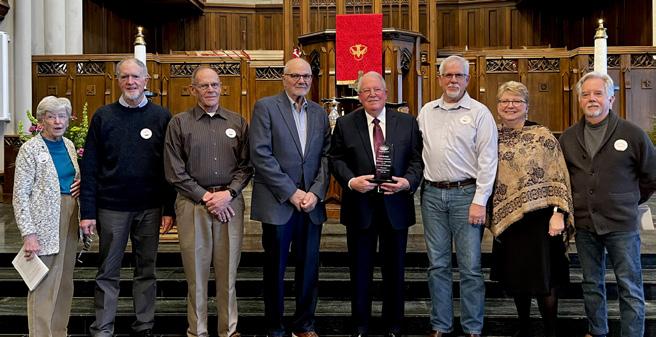

By Paul Marsh, First Church Tulsa Communications
Did you know creating art can be a form of worship? Mary Lee Weaver, a talented artist and dedicated member of First Presbyterian Church, has been inspiring members to deepen their connection with Scripture through her watercolor classes.
Mary Lee discovered her passion for watercolor in 2001 at Ghost Ranch, studying under master teacher Pamona Hollenbeck. Though she attended six of Pamona’s classes, balancing art with her career and raising two daughters left little time to paint. After retiring and during the pandemic, Mary Lee embraced painting as a daily practice, converting a bedroom into a home studio. She now takes annual watercolor workshops, including a recent abstract class in Michigan with Kathy Waeger.
Mary Lee’s Watercolor the Word classes at First Church invite participants to use Scripture as the foundation for their paintings, fostering a deeper connection with God’s Word. Held in the Tower Room over several weeks, these classes combine watercolor techniques with spiritual practices, showing how art can glorify God and serve as a form of meditation.
During Lent, Mary Lee led Watercolor through Lent, a unique blend of Bible study and painting. Using the book The Ignatian Workout for Lent by Tim Muldoon, the group explored daily readings, prayer, journaling, and spiritual exercises rooted in St. Ignatius’ teachings. Weekly meetings provided opportunities for reflection, discussion, and hands-on watercolor painting. Participants created cards inspired by biblical themes, blending artistic expression with meditative worship.
Mary Lee brings her expertise and love of Scripture to her sessions. Her career in social work shaped her compassionate spirit, and since joining First Church Tulsa in 1993, she has served faithfully as both a Deacon and Elder. Mary Lee demonstrates that art is not just a creative outlet but a profound way to engage with faith and community.
“I like to use Visio Divina (divine seeing in Latin) — a way to help focus on God through prayer and scripture with drawing, painting, a photo or a work of art. It’s an invitation to listen to God through this practice.”
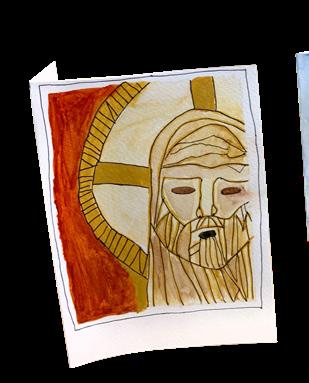



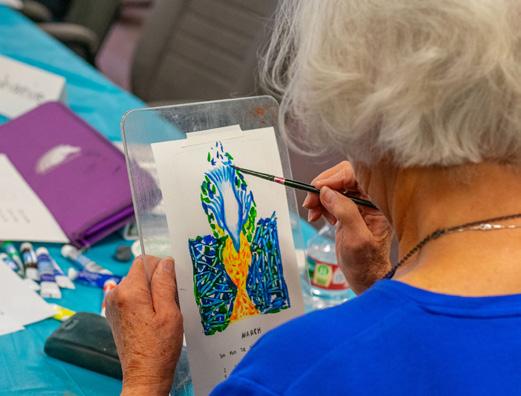
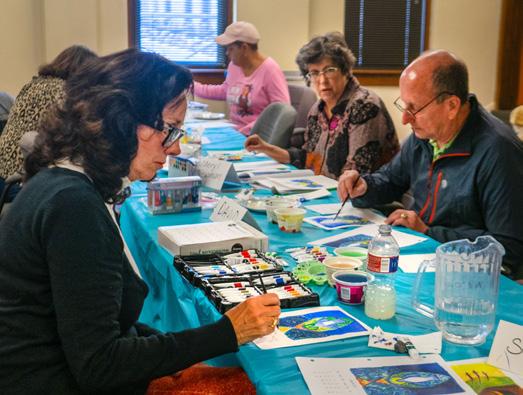

– Mary Lee Weaver

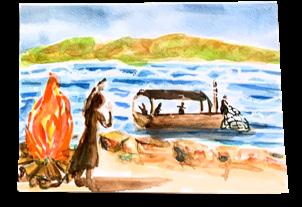


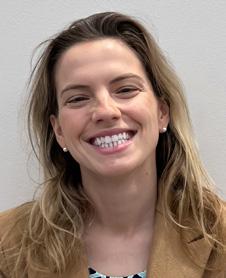
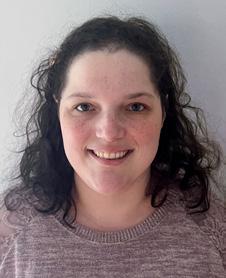


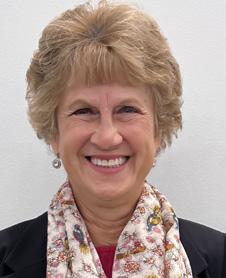


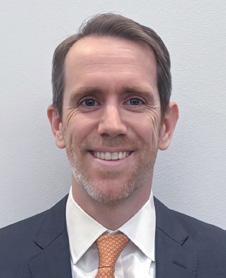

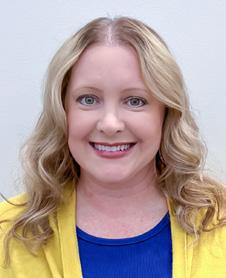
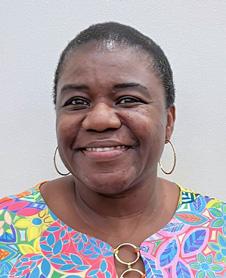
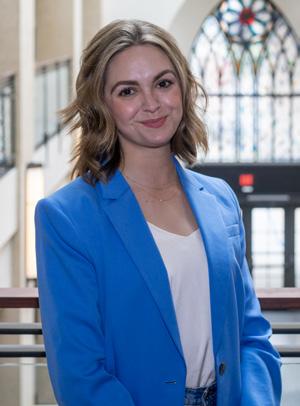
Amiria Rose Lynn Bell, daughter of Jessica and Philip Bowman, was baptized on November 3.
Francine Rose Boehning, daughter of Abby and Sam Boehning, was baptized on October 13.
Valerie Hart McAfee, daughter of Kelsey and Matt McAfee, was baptized on November 10.
Alexander Langholz Seibert, son of Lauren and Dylan Seibert, was baptized on October 30.
William Henry Shipley, son of Margo and Reid Shipley, was baptized on December 8.
Amani Katana Tsuma, son of Rachael and Solomon Tsuma, was baptized on October 20.
Cathrine Wanjiru and Edgar Lopez were married on October 19.
Tara Brumble and Taylor Law were married on November 2.
Jonathan Henry Holstein, son of Whitney and Jonathan Holstein, was born on September 16.
Anne Marie Claire Holk, daughter of Jen and Clay Holk, was born on October 22.
Felicity Anne Trotzuk, daughter of Jane and Dylan Trotzuk, was born on October 25.
Ismael Ahadi Lopez, son of Catherine Wangui and Edgar Lopez, was born on January 13.
Eloise Jean O’Neal, daughter of Lexi and Bob O’Neal, was born on January 15.
Kayson James Crowe, son of Paige and J. J. Crowe, was born on January 26.
Marian Bovaird, a member since 1938, died on December 11, 2024
Marilyn Davis, a member since 1952, died on January 14, 2025
Cecil Drummond, a member since 2006, died on January 18, 2025
Roger Mobley, a member since 1960, died on December 29, 2024
James Morey, a member since 2007, died on September 23, 2024
Beverly Parschauer, a member since 2016, died on November 18, 2024
Margaret Pray, a member since 1963, died on October 6, 2024
Tom Reynolds, a member since 2019, died on December 7, 2024
Larry Tromp, a member since 2018, died on November 1, 2024
We welcome visitors to First Church Tulsa and offer special events and classes designed specifically for newcomers and those wanting to become members.
Newcomer Gatherings: Newcomers, whether new or longtime worshippers, are invited to join us for coffee, bagels, and fellowship as we get to know each other and learn about First Church. Gatherings are held quarterly. Membership Classes: Interested in becoming a covenant member? Our membership classes, led by facilitators and pastors, help you learn about the church, how you can become involved, and provide resources and support to help you grow in your faith at First Church. No need to attend a Newcomer Gathering first. Classes are held quarterly.
Details for both newcomer gatherings and new membership classes can be found at FirstChurchTulsa.org/ newcomers
For more information, contact our Director of New Member Outreach Emma Myatt, at 918-301-1028 or emyatt@firstchurchtulsa.org.
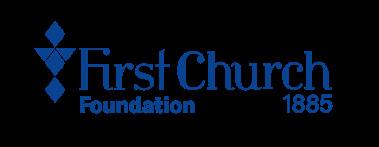

Think of all the blessings God has given us! There are so many it would be impossible to list them all: family, faith, and always knowing God is walking with us, in the good and the bad. Blessings, big and small, are given to us and come with the responsibility of sharing them. We are called to support ministries that feed the hungry, clothe those in need, and extend hospitality, knowing that in doing so, we also bless Him. Gifts we share with others include our time, our talents and being good stewards with financial blessings.
One way is to steward our assets is to provide for future generations. By doing so, this tells our descendants that, in the same way that God cares for our needs, we have also considered their needs. Supporting the First Presbyterian Foundation is how generations of the past have made sure to care for the children of God of today. Support can be through a bequest, a birthday celebration gift or adding your name to a leaf on the Foundation vine art wall by the Sanctuary.
God gives blessings that are uniquely personal to each of us. The founders and supporters of the foundation share a deep, personal connection to First Presbyterian Church, the community, and their own faith journeys.
Hand in hand and sharing blessing by blessing, the foundation has grown to be able to offer support to our next generation. We must also be willing, like those before us, to commit to sharing God’s blessings with future generations. Whether time, talent or financial gifts, how do you want to share your blessings?
Join us this spring as we celebrate and share the remarkable gifts the foundation gives our congregation.
To learn more about how to share your blessings with the First Presbyterian Foundation, call Katie Williams at 918-292-9063.
“I am the true vine, and My Father is the vinedresser. Every branch in Me … that bears fruit, He prunes it so that it may bear more fruit.” – John 15:1-2

Tidings: The Holy Spirit at work in and through the members of the First Presbyterian Church



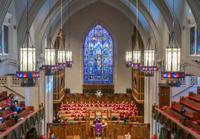
Tidings is a quarterly publication of First Presbyterian Church of Tulsa, 709 South Boston Avenue, Tulsa, Oklahoma 74119.
Read past issues of Tidings on our website at FirstChurchTulsa.org/Tidings. Please direct questions or comments to communications@ FirstChurchTulsa.org or call 918-584-4701.
Editorial Team: Mark Brown, Duff Points, Lynn Fesperman, Kathy Wilson and Paul Marsh Contributors: Rev. Dan Hutchinson, Vicky Wilcoxsen, Ron Pearson, Beth Pielsticker, Jerry McCoy, Emma Myatt, Carol Elrod and Kathy Wilson.
Thank you to the Communications Committee for reviewing and selecting editorial for inclusion.
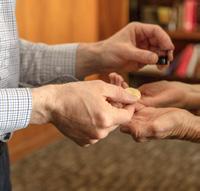
For pastoral needs, prayer requests, important family news or a change in contact information, please call 918-584-4701 or email Kathy Wilson at kwilson@firstchurchtulsa.org. To directly request prayer by the Guild of Intercessors, call Paula Peterson at 918-2965548 or text 918-688-2163.
Find all links at: Linktr.ee/FirstChurchTulsa


